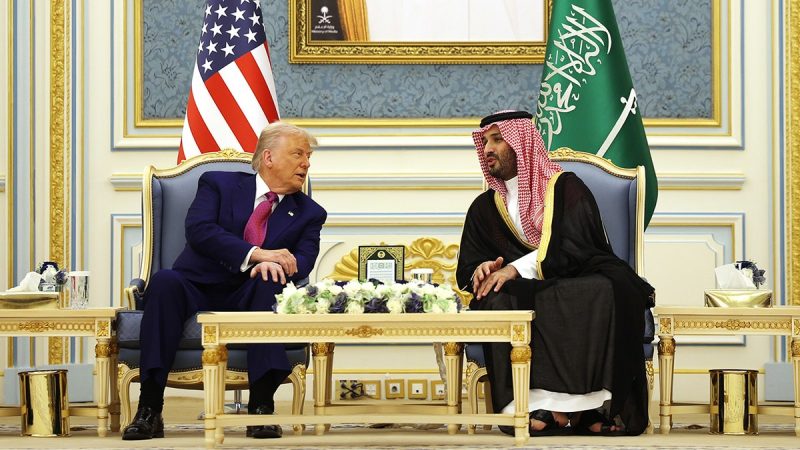
President Donald Trump returned to Washington from the first major trip of his second term with significant agreements in place.
The deals struck in the Middle East mark historic moments for both the U.S. and its partners in the region. Saudi Arabia, the United Arab Emirates (UAE) and Qatar have all committed to increasing their investments in the U.S., similar to deals Trump has pushed for with U.S. partners across the globe.
1. Saudi Arabia
Saudi Arabian Crown Prince Mohammed bin Salman and Trump signed several agreements on energy, investments, defense, mining and more that totaled $600 billion. This included a commitment by Google, Uber, Salesforce, AMD and Saudi Arabia’s DataVolt to invest $80 billion toward the development of revolutionary technologies in both countries.
American companies will also take on major projects in Saudi Arabia, including the King Salman International Airport, King Salman Park, The Vault and Qiddiya City, according to the White House. The administration predicts the projects will generate a total of $2 billion in U.S. service exports.
Additionally, several U.S. government departments will begin coordinating with Saudi government ministries, including the U.S. Department of Energy and the Ministry of Energy of the Kingdom of Saudi Arabia, as well as NASA and the Saudi Space Agency.
Trump was also able to secure an agreement that would allow the U.S. to carry cargo between Saudi Arabia and third-party countries without stopping in the U.S., which the White House said is ‘an important right for cargo hub operations.’
2. Qatar
Trump’s deals with Qatar were arguably the most controversial of his trip, after both Republicans and Democrats criticized a plan for Doha to provide a jumbo jet that is expected to be used as Air Force One.
Sen. Ted Cruz, R-Texas, and Sen. Bernie Sanders, I-Vt., found themselves in a rare position — on the same side of an argument. However, they objected to the plan for different reasons. While Sanders questioned the constitutionality of the administration accepting the Qatari jet, Cruz cited ‘significant espionage and surveillance problems.’ Additionally, Sens. Rick Scott, R-Fla., and John Kennedy, R-La., expressed their lack of trust in Doha.
‘Qatar is not, in my opinion, a great ally. I mean, they support Hamas. So, what I’m worried about is the safety of the president,’ Scott told reporters on Tuesday.
The deals Trump secured during his trip will see Doha and Washington participate in agreements worth $1.2 trillion, according to the White House. This is in addition to economic deals totaling $243.5 billion, which include the sale of American-made aircraft to Qatar Airways.
The White House also touted a defense deal that will ‘lock in Qatar’s procurement of state-of-the-art military equipment from two leading U.S. defense companies.’ The two countries also agreed to a multibillion-dollar agreement to strengthen their security partnership.
3. United Arab Emirates
Trump left the UAE with $200 billion in commercial deals, including a $14.5 billion commitment from Etihad Airways to invest in 28 American-manufactured aircraft. Additionally, Emirates Global Aluminum is set to invest $4 billion in an aluminum smelter project in Oklahoma, which will be one of the first new smelters built in the U.S. in 45 years, according to the White House.
The UAE and the U.S. also reached energy agreements in which the Abu Dhabi National Oil Company will partner with ExxonMobil, Occidental Petroleum and EOG Resources to expand oil and natural gas production. The White House said in a statement that the deal is expected to ‘help lower energy costs and create hundreds of skilled jobs in both countries.’
The deals made during Trump’s trip to Abu Dhabi are set to expedite a commitment the UAE made in March to a 10-year, $1.4 trillion investment framework in the U.S., which covered a range of industries, including energy and AI.






